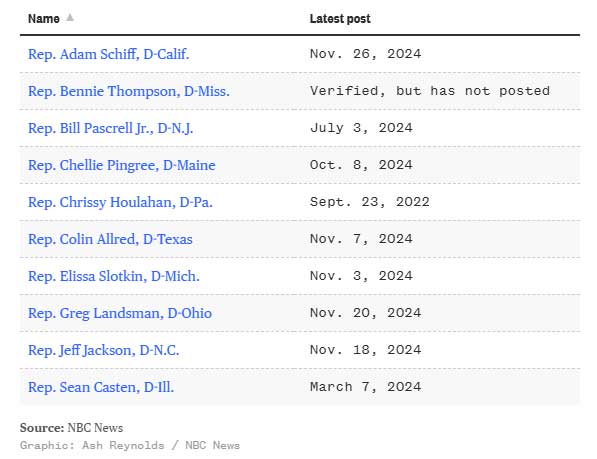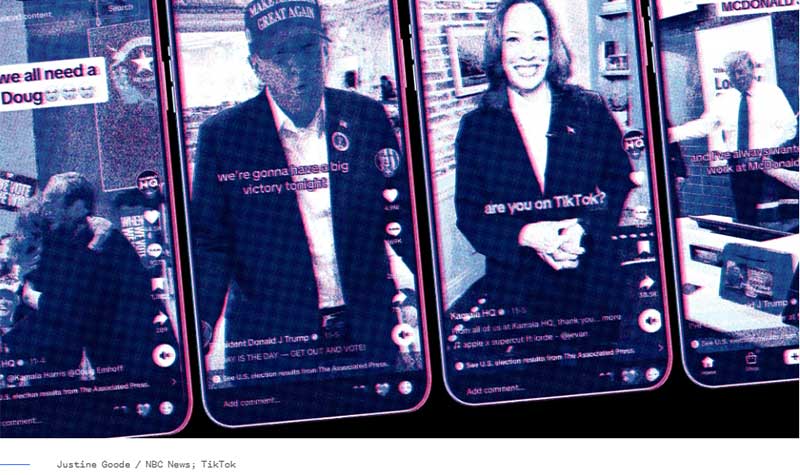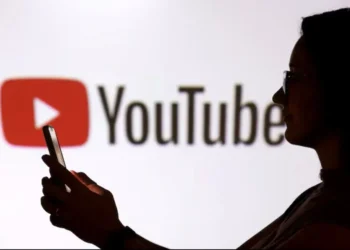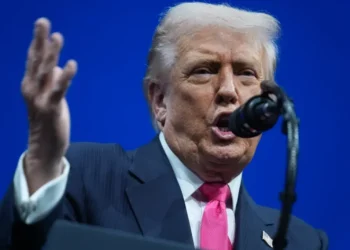Politicians Oppose TikTok While Using It to Win Elections
Many U.S. politicians advocating for a TikTok ban due to national security concerns still actively use the platform to connect with voters, highlighting a stark contradiction in their actions and rhetoric.
TikTok as a Campaign Tool
According to an analysis by NBC News, at least 49 members of Congress, five officials in President Joe Biden’s administration, and President-elect Donald Trump have verified TikTok accounts. Notably, 23 of these Congress members voted for legislation supporting a potential TikTok ban. Despite this, they used the platform extensively to campaign, share their beliefs, and shape their public personas.
The widespread use of TikTok among politicians, even those advocating against it, underscores the platform’s unparalleled reach. For many Americans, TikTok has become a primary source of information, making it an indispensable tool for political campaigns.
TikTok’s Unique Appeal to Politicians
Cheyenne Hunt, a former Democratic congressional candidate and advocate for tech regulation, described the political use of TikTok as “an interesting balance.” She explained that politicians are drawn to the platform’s unique algorithm, which allows them to reach millions of viewers organically without paid promotion or pre-existing popularity.
“Increasingly, TikTok is the main source of news for most Americans,” Hunt said. “It’s where people are, and it’s where they’re engaged.”
However, Hunt cautions against targeting TikTok exclusively. She argues that other tech giants, such as Meta, pose similar privacy and security concerns, yet receive less scrutiny.
Trump and Biden: TikTok Campaigns
Donald Trump, who sought to ban TikTok in 2020, launched his official TikTok account in June 2024 as part of his presidential campaign. He quickly amassed 14.6 million followers, making him the most-followed U.S. politician on the platform. His content, which includes rally clips, voter interactions, and collaborations with influencers, consistently receives high engagement and positive feedback.
In contrast, President Biden joined TikTok in February 2024 for campaign purposes but faced criticism for his apparent inconsistency. While his administration worked to enforce a potential sale of TikTok to an American company, Biden’s TikTok account remained active, later supporting Vice President Kamala Harris’s campaign.
Conflicting Positions and Public Perception
Trump’s embrace of TikTok marked a reversal of his earlier stance. However, because he adopted the platform after leaving office, his shift appears more organic. Biden and Harris, on the other hand, continued to oppose TikTok’s Chinese ownership even as they used it to campaign, leading to accusations of hypocrisy.
“The hypocrisy is stark,” Hunt said. “They’ve called TikTok a national security threat, yet they rely on it to reach voters.”

TikTok’s Role in Congress
More than 20 members of Congress who voted for a TikTok ban still maintain active accounts. For instance, Rep. Jeff Jackson of North Carolina, who has 2.2 million followers, apologized to his audience for supporting the ban. He explained that classified briefings revealed “genuinely alarming” information about TikTok. However, his continued use of the platform helped him connect with voters and ultimately win his bid for North Carolina Attorney General.
Similarly, other representatives, such as Rep. Jasmine Crockett of Texas, keep their TikTok accounts active primarily to prevent impersonators, even if they no longer post due to security concerns.
The Senate: Party-Line Voting and TikTok Use
In April 2024, the Senate voted overwhelmingly in favor of legislation requiring TikTok’s sale, with 79 supporting the measure and 18 opposing it. Among those who voted for the legislation were Sen. Cory Booker of New Jersey and Sen. Jon Ossoff of Georgia, both of whom have large TikTok followings. Booker continues to use TikTok to campaign and support Democratic efforts, while Ossoff has been inactive since 2021.
On the opposing side, Sen. Bernie Sanders of Vermont, who has the largest TikTok following in the Senate at 1.5 million, voted against the bill. His account focuses on high-quality videos of speeches and interactions with constituents.
The Bigger Picture: Tech Policy vs. Political Convenience
Despite the ongoing debate over TikTok’s future in the U.S., the platform remains a vital tool for politicians to connect with voters. Hunt argues that the focus should shift from banning individual platforms to passing comprehensive tech regulation.
“Until we stand up to big tech lobbies and create strong data privacy laws, we’re not truly addressing the issue,” Hunt said. “Targeting individual apps instead of implementing broad consumer protections leaves us vulnerable.”
Conclusion
TikTok’s influence on American politics is undeniable. Politicians across the aisle, even those advocating for its ban, continue to rely on its massive reach to engage voters and shape their campaigns. This contradiction highlights the complex relationship between modern technology and political strategy.
This article was rewritten by JournosNews.com based on verified reporting from trusted sources. The content has been independently reviewed, fact-checked, and edited for accuracy, neutrality, tone, and global readability in accordance with Google News and AdSense standards.
All opinions, quotes, or statements from contributors, experts, or sourced organizations do not necessarily reflect the views of JournosNews.com. JournosNews.com maintains full editorial independence from any external funders, sponsors, or organizations.
Stay informed with JournosNews.com — your trusted source for verified global reporting and in-depth analysis. Follow us on Google News, BlueSky, and X for real-time updates.














